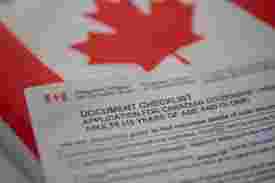Applying for Canadian citizenship is an exciting step for permanent residents seeking full participation in Canadian society. However, the application process can be complex, and submitting the correct documentation is essential. A well-prepared Canadian Citizenship Document Checklist ensures that your application is complete, accurate, and processed efficiently.
Proof of Permanent Residency
One of the first items on any Canadian Citizenship Document Checklist is proof of permanent residency. Applicants must provide official documents confirming their permanent resident status in Canada. This typically includes a Permanent Resident (PR) card or a Record of Landing (IMM 1000) form. Maintaining valid PR status is crucial, as applicants must meet residency requirements to be eligible for citizenship. It is also important to ensure that any changes in your status are documented properly, as immigration authorities may verify these records during the application review process.
Identification Documents
Identification documents are another critical component of the Canadian Citizenship Document Checklist. Applicants should include a valid passport or travel documents, government-issued ID, and any previous visas or permits issued in Canada. These documents confirm your identity, residency, and travel history. Accurate identification helps IRCC verify your information quickly and reduces the risk of delays in processing your application.
Language Proficiency Proof
For applicants between the ages of 18 and 54, demonstrating language proficiency in English or French is mandatory. Acceptable evidence includes results from an approved language test, educational transcripts from recognized Canadian or international institutions, or proof of employment in English or French. Including these documents on your checklist ensures that your application meets the language requirement, which is a critical step in the citizenship approval process.
Tax Documents
Filing taxes is an important aspect of Canadian citizenship eligibility. Applicants must provide proof of filing income taxes for at least three years within the five-year period before applying. Tax documents, including Notice of Assessment from the Canada Revenue Agency (CRA), show that applicants have met their financial obligations. Adding these to your Canadian Citizenship Document Checklist ensures that your application is compliant with tax requirements, avoiding potential delays or complications.
Citizenship Test and Other Supporting Documents
Applicants aged 18-54 are generally required to take a citizenship test to demonstrate knowledge of Canada’s history, values, institutions, and symbols. While the test is not a document, including preparation materials and relevant supporting evidence, such as educational certificates or proof of Canadian studies, can help substantiate your application. Additionally, other supporting documents may include marriage certificates, adoption papers, or legal custody documents for applicants sponsoring children.
Application Forms and Fees
Completing and including all necessary forms is a core part of the Canadian Citizenship Document Checklist. Ensure that forms are filled out accurately, signed, and dated. Applicants must also include the correct fees for processing, which cover the application and, if applicable, the citizenship ceremony. Submitting all forms and fees together with supporting documents increases the likelihood of a smooth application process.
Conclusion
A well-organized Canadian Citizenship Document Checklist is essential for anyone applying for citizenship in Canada. By carefully gathering proof of permanent residency, identification, language proficiency, tax compliance, supporting documents, and completed application forms, applicants can reduce delays and improve their chances of success. Proper preparation ensures that your application is thorough, accurate, and ready for review by Immigration, Refugees, and Citizenship Canada (IRCC). Following this checklist not only simplifies the process but also helps permanent residents take a confident step toward becoming full Canadian citizens, with all the rights and privileges that come with it.




